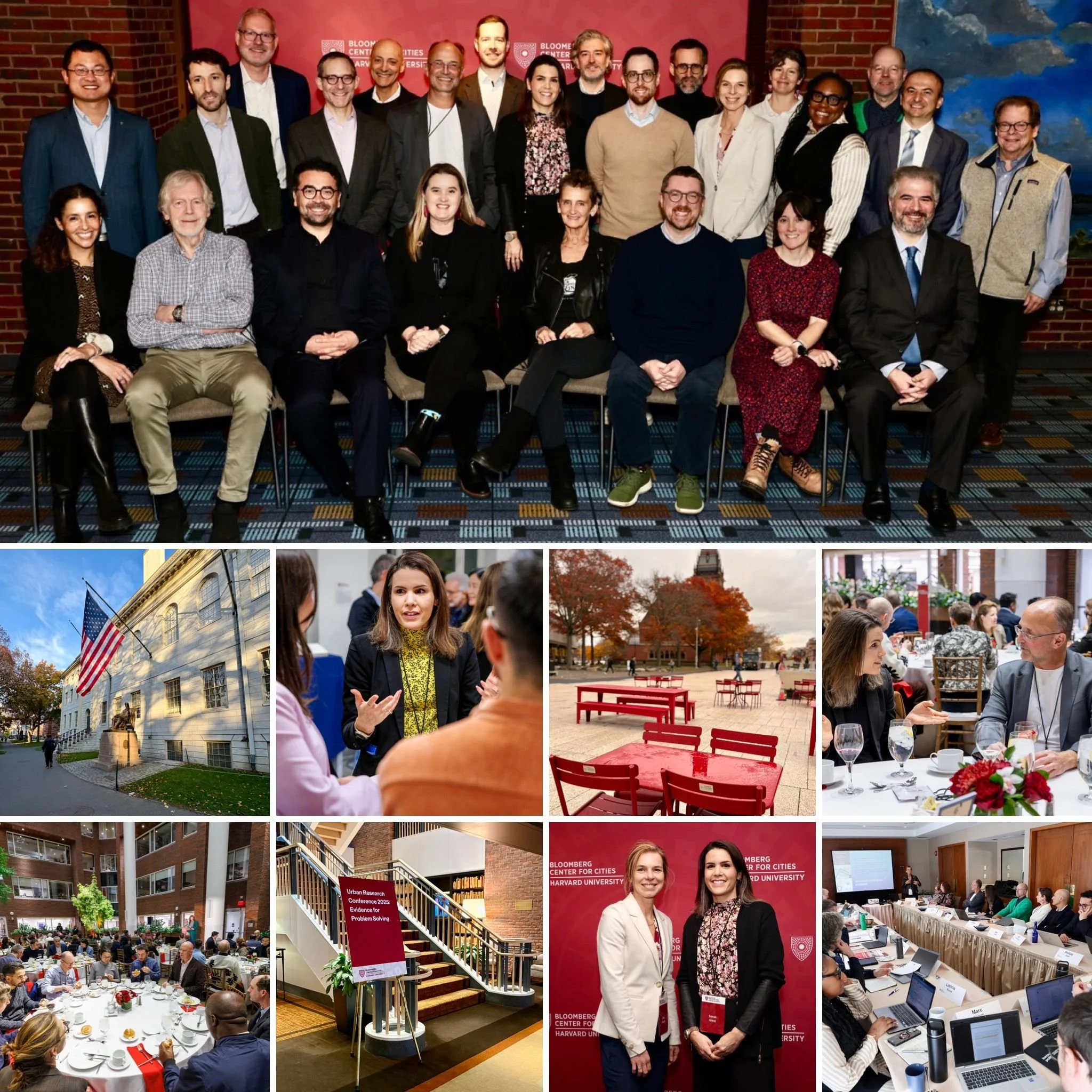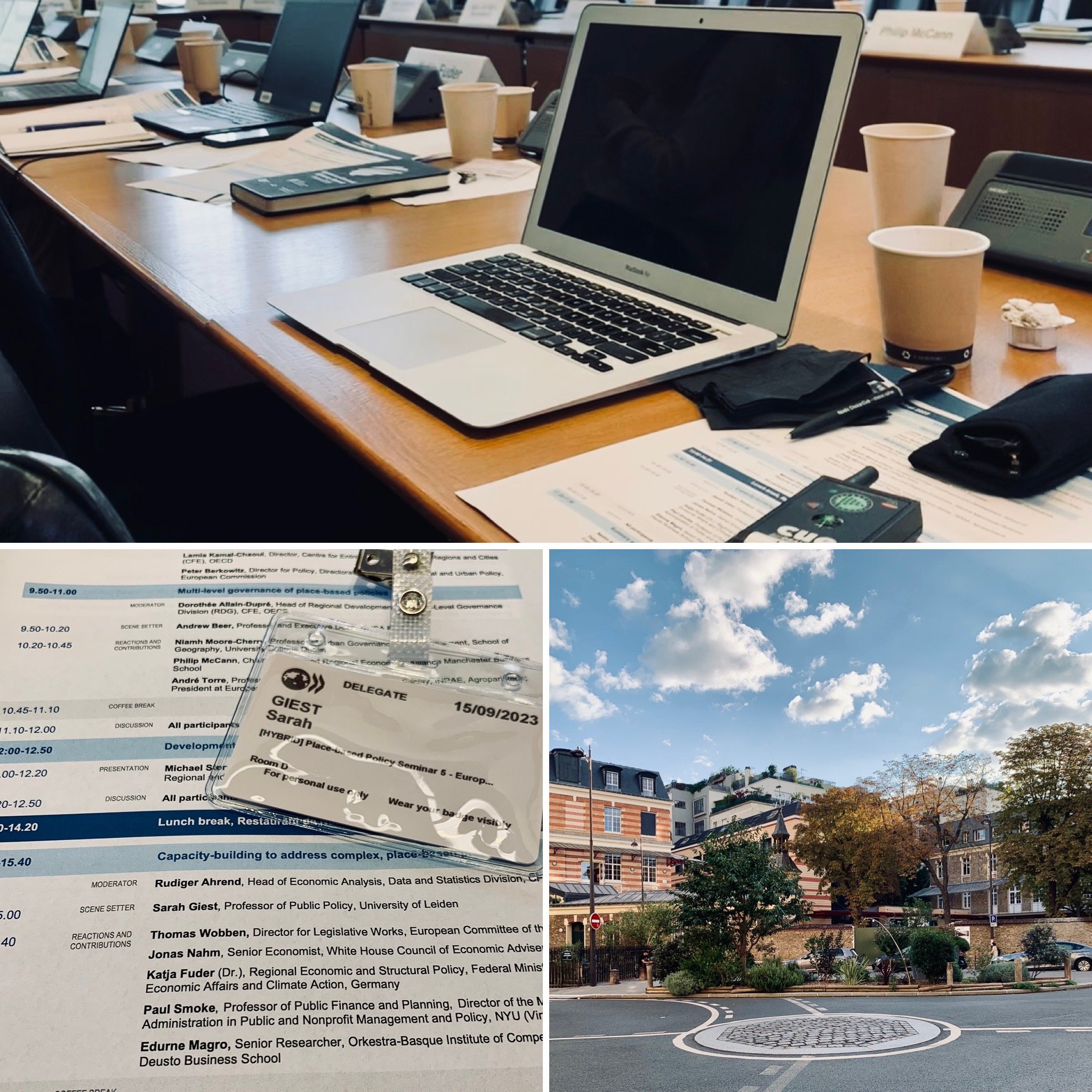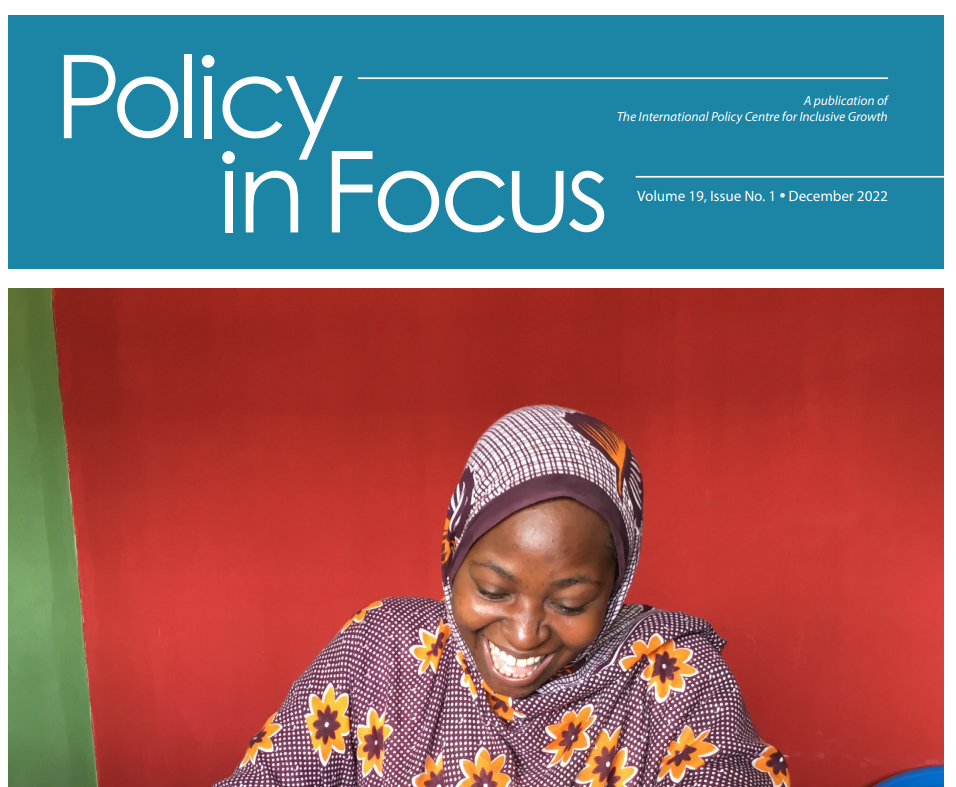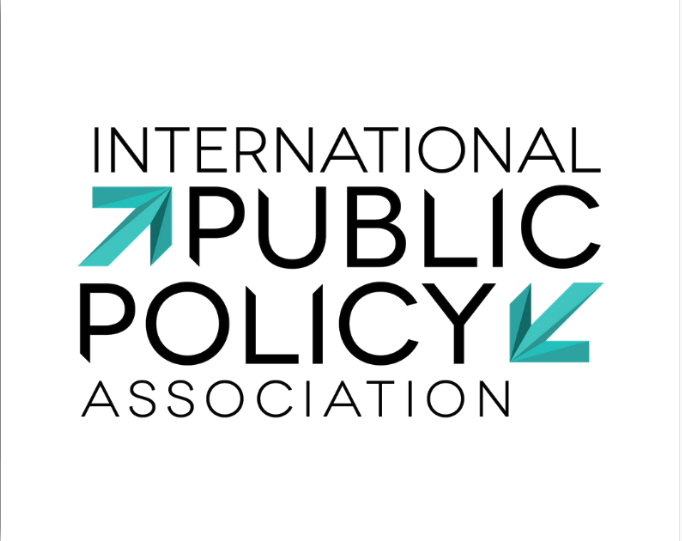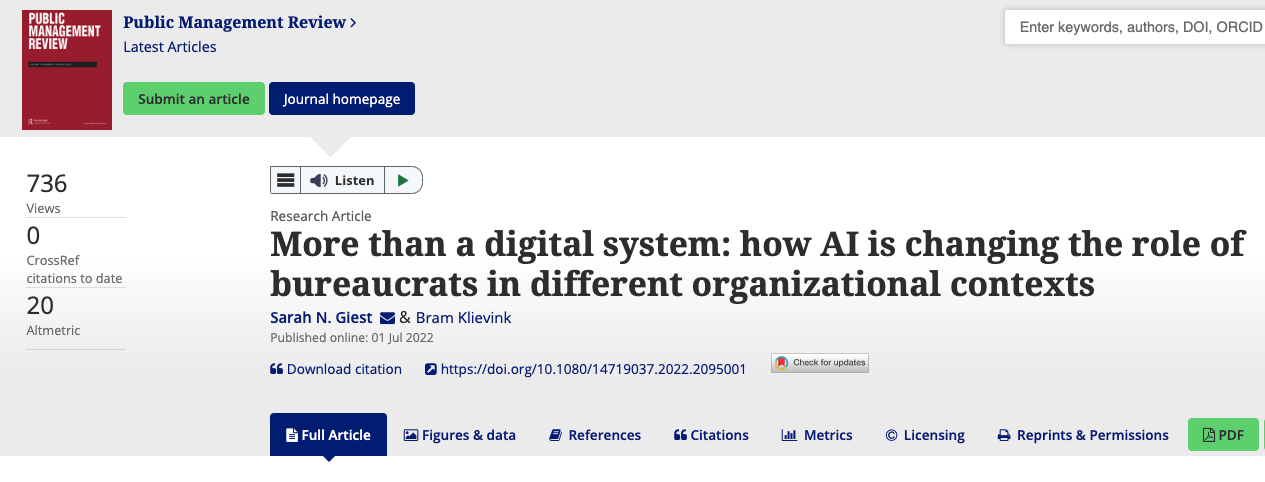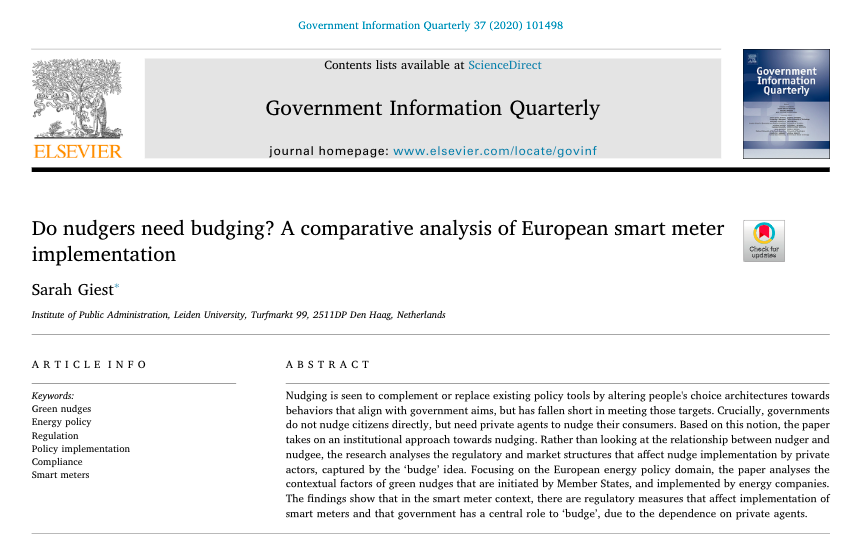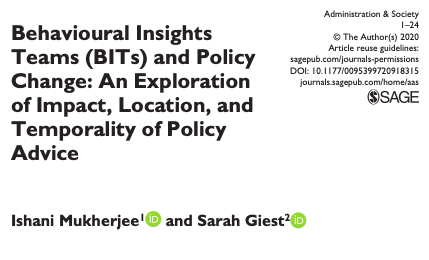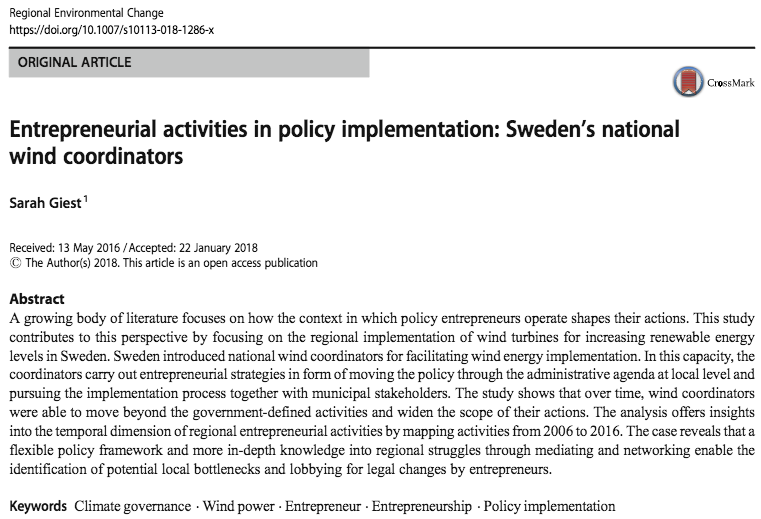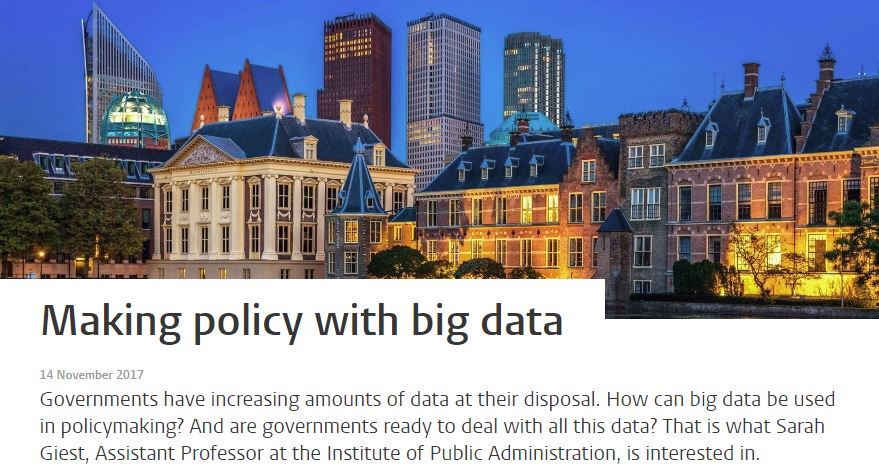News and Updates
Bloomberg Center for Cities Conference at Harvard
I am immensely honored to have been part of the Inaugural Bloomberg Center for Cities Conference on ‘Evidence for Problem Solving’, bringing together 122 scholars across multiple disciplines from 93 organizations across 15 countries and six continents. The track on ‘Innovation and Leadership in Local Government’ combined interesting scholars and exciting ideas. I was honored to being able to chair a session as well as present a new research idea entitled ‘Invisible Ties, Digital Eyes: Scaling Neighborhood Initiatives in the Context of Digital Public Services’.
Handbook on Governance and Data Science
Bram Klievink, Alex Ingrams, Matt Young and I edited the Handbook on Governance and Data Science. Merging governance studies and data science, the goal of the Handbook is to provide a comprehensive overview of how these fields interact with each other, driving a greater understanding of and guidance for the data-driven transformation of government. Bringing together contributions from leading scholars and practitioners, the Handbook shows how data science can improve decision-making, enhance services, and increase transparency and accountability in government. The authors cover a broad spectrum of techniques, such as predictive modelling and analyzing public sentiments in real time, which are useful tools for today's public administrators. They also address the ethical challenges, privacy issues, and need for transparency when automating decisions. The Handbook provides in-depth analysis and insights into both the benefits and complexities of employing data science in public settings, creating a dialogue on the responsible use of data science in governance.
LNVH meets Minister Bruins
In January 2025, a meeting took place between Eppo Bruins, Minister of Education, Culture, and Science, and the LNVH - Dutch Network of Women Professors. During this meeting, a critical and constructive dialogue was held on important topics, such as: The entry, progression, and exit of women in science, with attention to findings from the 2024 Monitor of Female Professors and the disastrous impact of proposed budget cuts on gender equality, talent retention, and the quality of science. And social safety in higher education and research, including next steps and collaboration between OCW and LNVH. The meeting concluded with agreements on future cooperation and action points to continue working together towards a more inclusive and safer academic environment. In the photo from left to right: Sarah Giest, Kiki Lombarts, Yvonne Benschop, Eppo Bruins, Minister of Education, Culture, and Science, Annelien de Dijn, Lidwien Poorthuis, Tanya Bondarouk.
Handbook of Public Administration and Digital Governance
Ian Roberge and I edited the Routledge Handbook of Public Administration and Digital Governance. The book demonstrates the diverse nature of "digital government" through a series of case studies from different regions across the globe, including Africa, the Americas, Asia and Europe. The book uses these cases to highlight various aspects and implications of the intersection of digital technologies and public administration. These include impact of practices and principles of public administration, the effects of particular technologies/tools and the relationship between state and citizen. The book also addresses barriers and enablers to the adoption of digital technology, with select chapters focusing on artificial intelligence (AI) in governmental contexts by leading practitioners and scholars. Rather than providing region-specific lessons, the cases identify common challenges, offering a more holistic understanding of public administration in the digital era.
Inaugural Lecture | Oratie
Among family, friends and colleagues, I gave my inaugural lecture ‘Location unknown: bridging offline and online infrastructures in policymaking’. In the lecture, I looked at how the government’s emphasis on data and digital applications affects citizens’ experiences with public services, questioning whether these strategies truly make services easier, faster, and more accessible. Through the real-life experiences of citizens like Hans, Soraya, and Sylke, I highlight the challenges governments face in reconciling the push for standardized, data-driven solutions with the need for nuanced, individualized support provided by local resources.
OECD report published
The report “Policy capacity mechanisms for addressing complex, place-based sustainability challenges” for the OECD-EC workshop on Placed-Based Policies for the Future has now been published and is available here.
Board Member LNVH
Since January 2024, I am a board member of the ‘Dutch Network of Women Professors (LNVH)’ and look forward to contributing to the work that is underway by the network in making academia a more inclusive and diverse place for women in particular. The short interview about my membership can be found here: https://www.lnvh.nl/a-4052/sarah-giest-joins-lnvh-board.
Expert at OECD-EC Workshop
In Paris, I had the opportunity to speak as an expert at an OECD / EU workshop on "Policy capacity mechanisms for addressing complex, place-based sustainability challenges". This led to fruitful discussions on capacity-enabling initiatives for government. The full OECD report will follow later this year.
More info on this place-based policymaking workshop series can be found here: https://www.oecd.org/regional/place-based-policies-for-the-future.htm
Appointment as Professor
I am proud to announce that the University Board has appointed me as Professor of Public Policy with a focus on Innovation and Sustainability at the Public Administration Institute (Leiden University).
With training in Public Policy and Science, Technology, and Society (STS) Studies, I look forward to bringing experience from interdisciplinary and international settings as well as expand on the collaborative work I have done on innovation in social and environmental sustainability policy. I will utilize my Dutch and International network for the chair group to work on public policy topics. My service to the early-career research community in different capacities will continue by participating in university-wide and international conversations on challenges of this career stage.
Looking ahead, I will be actively involved in the Governance of Sustainability Master and the Liveable Planet program and continue the collaborations with within the Institute, Anthropology, CML, LIACS, and BOLD cities to further research and teaching on topics at the intersection of innovation and sustainability through a policy lens.
Contribution to UN report
Annemarie Samuels and I were invited to contribute to the ‘Policy in Focus’ report by the International Policy Centre for Inclusive Growth. We write about “Pre-conditions for equal digital access policies: The role of data practices and social infrastructure” by highlighting a key aspect in this discussion: When vulnerable citizens cannot access government services due to low digital literacy, the gap in representation of marginalised groups in government data may continue or even widen. The report can be found here.
This contribution is linked to two recent publications on “For good measure’: data gaps in a big data world” (Policy Sciences, 2020) as well as “Administrative burden in digital public service delivery: The social infrastructure of library programs for e-inclusion” (Review of Policy Research, 2022).
Chair of the Young Academy Leiden
I am excited to take on the Chair position within YAL and collaborate with Julia and Cathelijn in the leadership team. YAL members have worked hard these last three years to make the early-career community more visible and I will further facilitate this. An interview and more details can be found here.
EUKI Seminar, Data Management in Smart Cities
Throughout the EU the green and digital transition are increasingly being seen as complimenting each other. At the same time, cities and municipalities are highly relevant in mitigating carbon emissions. To tackle this topic, the European Climate Initiative (EUKI) invited me to join a panel of speakers on the topic of ‘Data Management in Smart Cities’, which sparked interesting discussions and insights into practice. A summary of the event can be found here as well as a series of videos.
Interdisciplinary NWO KIC Grant
As part of an interdisciplinary consortium, I will do research into the responsible use of artificial intelligence for a safer, more secure society. The project ‘Hybrid Explainable Workflows for Security and Threat Intelligence’ (PI: F. Massacci (VU)) will invent a ‘metadata of uncertainty’ for threat intelligence (in both machine-readable and also human-interpretable forms) and validate it empirically. More information here.
Elected Member of the IPPA Executive Commitee
Together with six public policy scholars, I was voted into the Executive Committee of the International Public Policy Association. In this role, I will particularly facilitate IPPA’s international network together with Jennifer Curtis and Michael Howlett as well as the Early Career Network with Tullia Galanti.
PAR publication: More than a digital system
In this paper, Bram Klievink and I look at the effects of AI implementation on public sector innovation. This is explored by asking how AI-driven technologies in public decision-making in different organizational contexts impacts innovation in the role definition of bureaucrats. We focus on organizational as well as agency- and individual-level factors in two cases: The Dutch Childcare Allowance case and the US Integrated Data Automated System. The publication can be found here.
Appointment as Lead and Chair of Data & Policy - Area 1
In May 2022, I was appointed as Lead and Chair of the Area 1 committee ‘Data-driven Transformations in Policy and Governance’ of the Data and Policy Journal. The Data and Policy journal is a peer-reviewed, open access journal dedicated to the impact of data science on policy and governance. It has created a truly interdisciplinary community of researchers around this topic thanks to Zeynep Engin, Stefaan Verhulst, and Jon Crowcroft. Journal website
Evidence integration for coherent nexus policy design
Together with Ishani Mukherjee, I published a paper on ‘Evidence integration for coherent nexus policy design: a Mediterranean perspective on managing water-energy interactions’ in the Journal of Environmental Policy and Planning. The paper focuses on the challenges linked to data use in the context of nexus governance. We use a policy design lens and more specifically the perspective of organizational policy instruments to look at the Mediterranean region and zoom in on how the design of organizational tools enables or impedes policy coherence and thereby the efficacy of data use.
Data Gaps & Data Ethics
Recent publications have focused on data gaps, data ethics and the role of vulnerable groups in both. These publications include ‘For good measure: data gaps in a big data world’ (Policy Sciences), ‘Big Data Ethics: a life cycle perspective’ (Erasmus Law Review), ‘The value of data matching for public poverty initiatives: A local voucher program example’ (Data & Policy) and ‘Complementing Studies on Vulnerable Youths with Reddit Data’ (ACM).
Promotion to Associate Professor
As of September 1, 2021, I was promoted to Associate Professor at my Institute of Public Administration (Leiden University). I look forward to continuing my work with colleagues both from my institute and university as well as across the globe!
My focus will increasingly be on Data & Policy in the context of challenges in data/technology use in combination with public service delivery to vulnerable groups.
UTP Book published
My book ‘The Capacity to Innovate, Cluster Policy and Management in the Biotechnology Sector’ is now available through the University of Toronto Press. In the research, I use the biotechnology field as an example, to highlight the collaborative efforts of public bodies, private companies, and research institutes to establish a successful ecosystem of innovation. I argue that in this ecosystem, academics and practitioners alike should focus on absorptive and collaborative capacity elements missing in the cluster context in order to improve innovation performance. More info here.
Special Issue in Information Polity
Stephan Grimmelikhuijsen and I put together a special issue on “Algorithmic Transparency in Government”. We received great contributions that bring together transparency challenges experienced across different levels of government, including macro-, meso-, and micro-levels. This highlights that transparency issues transcend different levels of government – from European regulation to individual public bureaucrats. We outline this multi-level approach in the Editorial of the issue. All papers will be available as open access publication for the coming three months.
Nature Climate Change publication
The review article published in NCC together with Sara Hughes and Laura Tozer focuses on emerging dynamics of accountability in data-driven urban climate change governance. We see a trend toward data-driven urban climate governance incentivising city governments to prioritize narrowed metrics and external interests, inhibiting the broader transformations required to realize climate change goals. We also offer priorities for research at the intersection of data-driven climate governance and the accountability of city governments.
GIQ Publication on smart meter implementation
This paper published in Government Information Quarterly looks at the regulatory and market structures that affect nudge implementation by private actors in the context of European smart meters. It highlights that the regulatory context determines the success of nudging instruments; and that timing and coherence of regulation matters, due to the complex interplay of technical development, privacy and market dynamics. The paper can be found here.
PAR publication on Inclusivity in Online Participation
Together with a great team, including my PhD student Annelieke van den Berg, we published an article in Public Administration Review (PAR) on the role of recruitment messages and their effect on participation in an online participation platform based on an experiment conducted in a Den Haag neighbourhood. Link to the open access paper.
Publication on BITs and Policy Change
Together with Dr. Ishani Mukherjee, I recently published a paper in Administration and Society on Behavioural Insights Teams (BITs) and Policy Change. This publication makes a conceptual contribution to how we understand the role of BITs, specifically looking at Impact, Location and Temporality of policy advice. Link to the article
Virtual Project Meeting
This little news item in the context of the project “Data-driven, urban policy-making for social inclusion of young, vulnerable people” describes the policy dimension of the research that is being conducted. The picture shows the PI of the project, Prof Carolien Rieffe, and my Research Assistant Reia Lee. We also recently added to the team by hiring a new PhD student, Maedeh Nasri, who I am co-supervising.
New piece in Policy Sciences
The manuscript ‘For good measure’ written together with Dr. Annemarie Samuels looks at the data gaps and data quality for policymaking specifically pertaining to minority groups. The paper is open access and can be found here.
Dutch Publications on Policy & Data
(1) The contribution ‘Policy challenges relating to data use’ together with Prof. Steunenberg & Prof. Klievink to a collection of essays on policy measures and activities related to the use of data in the public space. Dutch version | English version
(2) Thinking alongside Liesbet van Zoonen, Emiel Rijshouwer, Els Leclercq, Luuk Schokker, and Fadi Hirzalla about policy implications of the research game ‘Jouw buurt, jouw data’ (Your neighbourhood, your data). Dutch version | English version.
New Publication in JPP
This is a new piece on policy coordination challenges in smart meter implementation context published in the Journal of Public Policy. The main theoretical goal is to add a demand and supply perspective to policy coordination in order to highlight timing and coherence issues in policy implementation.
Editorial Board Member of Data & Policy
Since June 2019, I am an Editorial Board Member of the Cambridge University Journal Data & Policy. The Journal is a peer-reviewed, open access venue dedicated to the potential of data science to address important policy challenges. For more information about the goal and vision of the journal, read the Editorial Data & Policy: A new venue to study and explore policy–data interaction by Stefaan G. Verhulst, Zeynep Engin, and Jon Crowcroft.
Elected Member of the IPPA College
Since June 2019, I am an elected member of the International Public Policy Association (IPPA) College. IPPA is a non-profit organization governed by a College of 24 members representing the individual members and currently 28 members representing the institutional members.
Inauguration of the first members of the Young Academy Leiden
On March 20th, 2019, the first members of the Young Academy Leiden (YAL) were installed (Article in Dutch). I will be a member of this group of young researchers for the coming five years, representing the Institute of Public Administration and the Faculty of Governance and Global Affairs. The activities of the group will range from interdisciplinary exchange, outreach to society, and giving input on university-internal policies. Looking forward to working with this enthusiastic, creative and passionate group!
Special Issue on ‘Big Data in Governance and Policy’ published in Politics and Governance
Together with Dr. Reuben Ng, I co-edited a special issue on ‘Big Data in Governance and Policy’ in the Journal of Politics and Governance. The whole issue is open access and can be found here. The issue highlights the lack of engagement in the current literature with the application of big data at the cross-section of governance of data and its utilization in the policy process and draws out aspects related to its definition and future research agenda. The contributions highlight several aspects related to big data in different contexts, such as local and national government as well as a variety of policy areas. They converge on the idea that big data applications cannot overcome existing political and structural limitations that exist in government. This leads to a future research agenda that looks at the disconnect between data production and usage as well as identifying policy issues that are more or less suitable for data analytics. The Editorial summarizes the findings of the articles.
New Publication on the use of Big Data and Behavioral Instruments in Energy Policy
The paper published in Energy Policy together with Dr. Ishani Mukherjee presents a conceptual overview of how the intersection of big data and behavioral knowledge would work in the renewable energy sector. We indicate that inserting behavioral insights into the energy instrument mix is complex due to technological trajectories, path dependencies and resistance from incumbent industries to change production patterns. We also highlight the underutilized role of large behavioral datasets that can inform not only policy implementation, but also policy design and evaluation efforts. Drawing on these findings, we introduce future research streams of government capacity in combining behavioral insights and data, the compatibility of this information with existing policy instruments and how this affects policy change.
New chapter on Policy Learning & Big data
The chapter is published in the book 'Knowledge, Policymaking and Learning for European Cities and Regions' (edited by Dr. Nicola Dotti) and analyzes the effects of outsourcing on big data analytics skills in (local) government.
Abstract:
Outsourcing of big data analytics due to a skill shortage in public administrations has affected policy learning at local level. Similar to the ICT developments in the 1990s that were accompanied by a New Public Management and evidence-based policy logic, the changes challenge government by creating a fragmented structure with limited feedback loops. This chapter points towards such developments in the UK, where especially local learning is restricted by siloed data analytics systems largely owned and operated by private organisations.
New open-access paper on Digital Public Service Delivery & Street-level Bureaucracy
The paper (co-authored with Dr. Nadine Raaphorst) aims to unravel the hindering factors of implementing digital public services, using electronic health records as an example.
Abstract:
There are several elements as to why digitization of public services is progressing slowly. Many explanations center on structural aspects of public institutions and their capacity and capabilities to implement digital tools. Others highlight the uptake by citizens as key to making technical solutions in the public domain work. This paper draws attention to a third line of argumentation by focusing on the role of street-level bureaucrats. Based on the assumption that they are caught in between the technical details of digital public service delivery and the organizational context in which these tools are implemented, the goal is to identify some of the factors that hinder the use of digital applications by street-level bureaucrats. To unravel those hindering factors, we use the “failed” implementation of electronic health records in the United Kingdom as an example in order to link it to existing research on digital governance and street-level bureaucracy. We conclude that the disconnect between organizational structures and digital tools is magnified at street-level, which may threaten discretionary power and autonomy of public servants and can make daily tasks more complicated and time-consuming. Policy implications drawn from this include, paying special attention to the trade-off between local autonomy regarding the adjustment of digital tools and national guidance and standardization as well as the distinction between the potential inability of public servants to use the tools due to limited training or age and the unwillingness linked to a loss of power and discretion.
New open-access chapter on Big Data and Urban Management
The chapter (co-authored with Dr. Uli Mans & Thomas Baar) is part of the book 'Urban Planet, Knowledge towards Sustainable Cities' edited by Elmqvist et al. (published with Cambridge University Press).
The overall book is concerned with global urbanization and its promise to better services, stronger economies, and more connections while also carrying risks and unforeseeable consequences. It takes an integrative look at our urban environment, bringing together scholars from a diverse range of disciplines: from sociology and political science to evolutionary biology, geography, economics and engineering. It includes the perspectives of often neglected voices: architects, journalists, artists and activists. The book provides a much needed cross-scale perspective, connecting challenges and solutions on a local scale with drivers and policy frameworks on a regional and global scale. The authors argue that to overcome the major challenges we are facing, we must embark on a large-scale reinvention of how we live together, grounded in inclusiveness and sustainability.
The chapter looks at the role of big data in managing the urban environment linked to the underlying dynamics of urban life and policies aimed at improving social cohesion. This chapter aims to contribute to this emerging discourse about how big data can improve urban policy-making, and focuses on the role that this technology can play in building more inclusive cities in the Global South. We highlight the need for urban authorities to invest in additional resources as well as meaningful knowledge transfer mechanisms that are in line with the concept of “mobile urbanism.” This is particularly important in low-income cities, where policy-makers are driven by the desire to address urban violence and to build more inclusive cities across different constituencies.
New Paper on Entrepreneurial Activities in Policy Implementation
The article is published (open access) in Regional Environmental Change and addresses entrepreneurial strategies in the Swedish wind energy context. Thereby, the chapter aims to contribute to this emerging discourse about how big data can improve urban policy-making, and focuses on the role that this technology can play in building more inclusive cities in the Global South. We highlight the need for urban authorities to invest in additional resources as well as meaningful knowledge transfer mechanisms that are in line with the concept of “mobile urbanism.” This is particularly important in low-income cities, where policy-makers are driven by the desire to address urban violence and to build more inclusive cities across different constituencies.
Abstract:
A growing body of literature focuses on how the context in which policy entrepreneurs operate shapes their actions. This study contributes to this perspective by focusing on the regional implementation of wind turbines for increasing renewable energy levels in Sweden. Sweden introduced national wind coordinators for facilitating wind energy implementation. In this capacity, the coordinators carry out entrepreneurial strategies in form of moving the policy through the administrative agenda at local level and pursuing the implementation process together with municipal stakeholders. The study shows that over time, wind coordinators were able to move beyond the government-defined activities and widen the scope of their actions. The analysis offers insights into the temporal dimension of regional entrepreneurial activities by mapping activities from 2006 to 2016. The case reveals that a flexible policy framework and more in-depth knowledge into regional struggles through mediating and networking enable the identification of potential local bottlenecks and lobbying for legal changes by entrepreneurs.
Interview with Leiden Centre of Data Science on Policy & Big Data
My interview with the Leiden Centre of Data Science (LCDS) is now online (English version/ Dutch version). I talk about government & data as well as current research projects and collaborations. Thank you to Jessie van den Broek for posing great questions!
New Chapter on Food Security and Sustainability
As part of the book 'Advances in Food Security and Sustainability, Volume 2' edited by David Barling, my colleagues Gerard Breeman, Dovile Rimkute and I published a chapter on "Food Security and the Sustainability of GMOs in the United States and the European Union". The book can be found here.
Interview with the Data for Policy Team on the Conference
My thoughts on the niche that the Data for Policy conference fills when it comes to work at the intersection of public policy and data science research.
Special Issue Call on "Big Data Applications in Governance and Policy" launched
Dr. Reuben Ng (Lee Kuan Yew School of Public Policy, NUS) and I have launched a special issue call on "Big Data Applications in Governance and Policy", which will be published in the Journal Politics and Governance next year. Details on the call can be found here.
We invite contributions on the topic of big data applications in governance and policy. The main research question guiding this issue is ‘how has big data shaped data governance, policymaking and practice’? Big data has taken shape in various theoretical and practical forms when it comes to policymaking. In this larger context, we focus on two major themes: First, the governance of big data, and second, the way that big data information enters the policy cycle and thereby contributes or challenges policy development and implementation. The first theme builds on a large set of literature focusing on e-government and digital public service delivery. This includes aspects of moving towards digital service delivery from a civil servant, but also from a citizen perspective. The second theme relates to the literature on evidence-based policymaking, public administration, and the question what role data as evidence plays. This focuses on topics that have been raised within this context regarding the weight that is given to data as one type of evidence and at what point of the policy cycle this type of information enters the policymaking process. Looking at these two themes, we seek to unravel the ways that big data impacts governance, policymaking and public administration. Both can be addressed by presenting new theoretical and methodological approaches for analyzing government use of big data in various ways.
We look forward to your submissions!
New Publication: Designing policies in uncertain contexts: Entrepreneurial capacity and the case of the European Emission Trading Scheme
Together with Dr. Ishani Mukherjee, I published a paper in 'Public Policy and Administration' on the role of policy entrepreneurs in the European Commission Trading Scheme. The paper can be found here.
Abstract: The paper focuses on enterprising agents in policy formulation and design by looking at their capacity of dealing with different levels of uncertainty. In climate policy specifically, different degrees and types of uncertainties pose a challenge to policymakers. Policy entrepreneurs and the combination of their analytical, operational and political competences are a relevant component in reducing ambiguity in policy design and translating broad policy goals to operational programmes and specific policy instruments. Using the case of the European Emission Trading Scheme, we suggest that the success of policy entrepreneurs in catalysing policy change is determined by their capacity to work against multiple kinds of uncertainty. This ‘uncertainty mitigating’ capacity on the part of policy entrepreneurs rests significantly on balancing managerial expertise and political acumen. We conclude that entrepreneurial capacity goes beyond current definitions in the literature, involving the balance among analytical, operational and political competences to navigate a politicized policy context.
First Results of READ-Urban Project presented at 'Data for Policy' Conference
We were able to present first results of the READ-Urban Project at the Data for Policy conference. The project is a collaboration among Wessel Kraaij and Jose Miotto (Computer Science, LIACS) and myself (Public Administration) at Leiden University as well as Statistics Netherlands and the Municipality of The Hague. Our discussion paper is available here: https://lnkd.in/gJWYBvw
Assistant Editor for newly-launched journal 'Policy Design and Practice' (Taylor & Francis)
Policy Design and Practice (PDP) has one goal: to be the source of the best new ideas for people creating, leading, and transforming policies throughout the world. PDP publishes cutting-edge, authoritative thinking on the key issues facing policy makers and is proud to contribute to better governance across sectors, countries and regions. Policy Design and Practice is about promoting and developing better government through better policy design and implementation. All of us are better off if government leaders and public officials made better decisions and implement them more effectively.
PDP covers a wide range of topics related to policy-making processes across a wide variety of sectors, and across a wide range of governance contexts, from international to local governments. PDP articles are written for practitioners by experts whose authority comes from careful study, analysis, and experience. The ideas presented in these articles can be translated into action and have been tested in the real world of policy-making. PDP articles demonstrate fresh thinking that advances previous knowledge, and whose practical application has been thought through clearly. PDP articles are short (4,000-6,000 words) and jargon-free.
New Publication: 'Big data for policymaking: fad or fasttrack?'
The paper (open access) published in Policy Sciences has the goal of answering the question whether big data is a fleeting trend or has long-lasting effects on policymaking. Three larger themes in the literature are identified: First, the role that institutional capacity has within government to utilize big data analytics; second, government use of big data analytics in the context of digital public services; and finally, the way that big data information enters the policy cycle, focusing on substantive and procedural policy instruments. Examples from the education, crisis management, environmental and healthcare domain highlight the opportunities and challenges for each of these themes. Exploring the various aspects of big data and policymaking shows that big data is here to stay, but that its utilization by government will take time due to institutional barriers and capacity bottlenecks.
Member of Governance and Data Science Group
The extensive use of electronic communication channels and other devices has opened new possibilities for collecting data on human behavior. This information is sometimes openly accessible, but largely part of administrative registration systems that are not open to the broader public. The data provides challenges for storing, analysis and new uses. The FGGA research group on Governance and Data Science focuses on what we can do (or should not do) with these new possibilities.
New Paper: Trust Dynamics in Innovation Networks: The Chicago Life Science Cluster
This publication in Administration and Society (open access) focuses on trust dynamics in innovation networks. Individuals and organizations within the network play an important role in creating trusting relationships. Using this as a basis, the article explores the dynamics of trust when relationships and positions within the network change. Counter to the expectation that relationships are formalized in this scenario, the article shows that in the Chicago case, trust is layered. The article concludes that third-party sources of information about trustworthiness are strategically established as a layer in the network and that individuals translate past interactions into lasting organizations that can facilitate trust.
New Paper: Big data analytics for mitigating carbon emissions in smart cities: Opportunities and challenges
The paper published in European Planning Studies (open access) addresses the growing scepticism around big data use in the context of smart cities. Big data is said to transform city governments into being more efficient, effective and evidence-based. However, critics point towards the limited capacity of government to overcome the siloed structure of data storage and manage the diverse stakeholders involved in setting up a data ecosystem. On the basis of this, the paper investigates the challenges city governments face when dealing with big data in the context of carbon emission reduction. Through the lens of the evidence-based policy and policy capacity literature, the cities of Copenhagen (Denmark), London (UK), Malmö (Sweden), Oxford (UK) and Vienna (Austria) are analysed. The cases reveal that the institutional complexity underlying big data integration limits local government capacity to set up data management structures that would allow further utilization of big data and that current solutions focus on local pilot sites and outsourcing of data analytics.
Governance and Data Science Group
To kick off a newly started collaboration between the Leiden Institute of Advanced Computer Science (LIACS) and the Faculty of Governance and Global Affairs (FGGA), we had a session on Governance and Data Science. The discussion largely evolved around the role of new methods for policymaking and the questions social science poses for computer science research. I gave a presentation entitled 'Big Data for Policymaking: Fad or Fast Track?', looking at some of the big data promises and realities and the challenges of government to incorporate big data tools into the policymaking process.
Technology & Government
The expert panel of Kim Grondsma (Ministerie van BZK), Rogier Kleinekoort (Municipality Den Haag), Dr. Jelmer Schalk, (Leiden University, Public Administration) and Dr. Christoph Stettina (Leiden University, LIACS) completed the elective 'ICT in the Public Sector'. We had a lively discussion on three major themes: Leadership & technology-oriented change, technology & public services/ performance and big data and government. In the conversation among the panel members and with students, it became clear that there are structural challenges that governmental levels and departments struggle with to execute and utilize some of the technology available. We also saw that providing public services can hold very different implementation motivations than having a business case in the market. All in all, an interesting debate!

